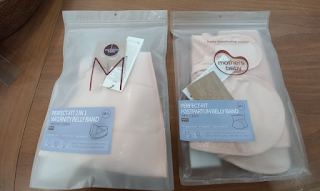Choosing Health: A Journey to Better Food Choices
In the past, when my 3-5 years old nephews and niece used to travel, they had a special backpack that was just the size of their bodies, and they carried it without losing anything. Inside the backpack, there were play cards, mini Transformers toys, and a bulging zipper bag filled with various kinds of gummy bears, and snacks hidden in vinyl packaging with fancy printed designs, countless in terms of size, variety, color, and taste.
To borrow the words of the elders, they were filled with nutritionally empty things. When jokingly asked for one piece, it was taken seriously as if they had to give away one of their own toes.
Whenever suggestions were made about not feeding them too much to my sisters, it felt as if a sparrow was chirping beyond the window since these artificial treats make their children calm for the time being.
I also ate a lot of such food when I was even older age than my nephews and niece, I know how delicious and precious they were. I have a memory of carrying them around and cherishing them as if they were a lifeline.
At that time, I didn't know why those things were so delicious. It felt like I could survive just by eating them.
After filling my stomach with these unhealthy foods and returning home, There were always fresh vegetable side dishes personally made by my mom, freshly cooked rice, and a table set with soup. After eating proper meals, I naturally realized that junk food was not the mainstay of my diet. Thanks to Mom, we could grow up healthy without any illnesses, and I learned that junk food should only be eaten occasionally or none, which was evident to us.
From the moment I felt that my body responds differently to the food I eat by every year, started reading books about how the food we eat becomes our brain and body, and I began to analyze the food I consume. I became curious about the additives in the snack boxes I used to enjoy, so I looked at the back. Clearly, there was a list of chemical additives that made me cringe. Although food rots when left for a long time, the expiration dates were at least two to three years.
Since then, I started asking questions. Why do human foods need food additives, colorings, and artificial flavors to create specific fruit flavors? Why are preservatives added to prevent oxidation? Why do consumers pay money for these things, and producers constantly produce them? It's a vicious cycle. It's clearly a selfish creation of capitalism, even targeting children.
Despite the fact that real fruits are abundantly available, why do they insist on imitating their flavors with chemical artificial tastes and why do children, who are growing and developing, eat them with joy? The most worrying reality is that the leading consumers who buy and feed these absurd chemical masses to children are their parents.
No matter how much education is provided through books, how many adults and children can recognize fully ripened apples or peaches by climbing the tree and examining them according to their position? How many know that dandelion leaves, which have grown in a place without exhaust gas, and after observing chickens love to eat dandelion leaves, can be also an excellent salad ingredient for human beings?
How many can sense that by feeding cows directly and regularly squeezing milk, they can prevent infections and become healthy cows without stress? How many can distinguish the difference between milk that has been squeezed by using the gripping of the hand and milk that is mass-produced and sold in supermarkets?
Opportunities to learn through experiences like these are scarce nowadays.
In most areas, there are not many chances to connect with nature and empathize with it. It has become too natural for us to go to the supermarket and consume food packed in plastic.
Food what we eat is truly important
We should take responsibility for the food we put in our mouths, especially when it comes to the nutrients that nourish our brains, organs, and skin. By having a consciousness on diet habits , and gaining firsthand experiences, we can make a positive impact. As humans, we share this planet with other living creatures and should strive to coexist harmoniously. Consuming unprocessed food without additives and preservatives may help reduce rates of depression, autism, and violence, and potentially contribute to lowering suicide rates. While I'm not an expert, I firmly believe in holding onto hope and exploring possibilities.







Comments
Post a Comment